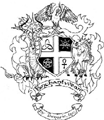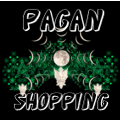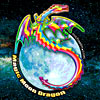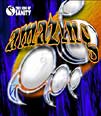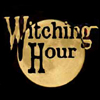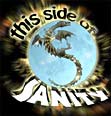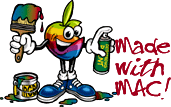
Dill is a plant and an herb.
- botanical information
- origin
- history
- part used
- storage
- astrological correspondences
- magick correspondences and uses
- ritual uses
- health care
- cautions and contraindications
botanical information:
Botanical name: Anethum graveolens
Common name: dill
Use the botanical name when ordering seeds (bulbs, etc.) or when looking up information in the library. Common names vary by nation, culture, and region, and sometimes the same common name is applied to different plants.
origin:
Origin: Mediterranean
history:
Dill was listed among many aromatic plants in a scroll of cuneiform from the great library at Nineveh. The library at Nineveh was established by King Ashurbanipal of Assyria (668-633 B.C.E.).
part used:
|
Part Used (dill seed): The “seeds” or fruit of the plant, used whole. Information courtesy of Mountain Rose Herbs |
|
Part Used (dill weed): The leaf, dried, cut, and sifted, or used fresh. Information courtesy of Mountain Rose Herbs |
storage:
Storage: Eat fresh dill within two days of purchase. You can dry dill.
astrological correspondences:
Astrological planet: Mercury ![]()
magickal correspondences and uses:
Incense: Dill incense or seed is appropriate for burning in love spells, such as the Aphrodite New Moon love spell, Hecate black candle love spell, or Isis Full Moon love spell.
Gender: masculine (traditional western European magickal gender)
Western element: fire
Magickal uses: Protection from negative magick.
Magickal uses: friendship, mental clarity, and restfulness
Love bath: A love bath is a safe and easy way for anyone to cast a love ritual. Dill is used in Scott Cunningham’s love bath number one. See the article on love baths for more information.
![]()
Mercury spells: Dill (as an herb) may be used in as an ingredient or substitute for magick spells and formulas related to Mercury matters (overcoming addiction, breaking bad habits, communication, divination, eloquence, intelligence, mental powers, psychic powers, self-improvement, study, travel, and wisdom). Be careful about substitutions for preparations that will be ingested or come in contact with the skin. These substitutions do not apply to medical uses. See the article on Mercury for a list of herbal substitutes for dill.
Love spells: Dill flowers are appropriate for use in love spells, such as the Aphrodite New Moon love spell.
Magick food for love spells: Dill is an appropriate ingredient for use in food for love spells, such as the Aphrodite New Moon love spell, Hecate black candle love spell, or Isis Full Moon love spell. See the article on foods for more information on using food magick in spells.
Magickal substitutions: Rosemary usually may be safely substituted for any herb in magick spells and rituals. Roses may safely be substituted for any flower.

Magical Uses information courtesy of 
|
ritual uses:
Ritual uses: Unity and fellowship rituals

health care uses:
Health Notice: Attempting to be an amateur doctor is potentially dangerous to your health. This web page is not professional medical advice. Nothing on this website should be considered as a substitute or replacement for professional medical advice. Persons should seek the advice of qualified health providers. Self-medication should not be used as a substitute for professional medical care. Please confirm all self-medication with your doctor or health care professional. See the article on healing for recommended healers.
traditional medicine:
Traditional Medicine: While many traditional practices have been scientifically verified, some are now known to be dangerous. Seek the advice of qualified health care providers.
Traditional medicinal uses: Dill was listed among many aromatic plants in a scroll of cuneiform from the great library at Nineveh. The library at Nineveh was established by King Ashurbanipal of Assyria (668-633 B.C.E.). Note that not all traditional medications are effective or even safe.
cautions and contraindications:
Cautions and contraindications: Dill is believed to be safe.
Wild gathering: Avoid wild gathering. Some plants are endangered species. Please grow your own herbs in your own goddess garden (or window boxes).
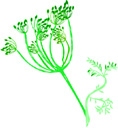
Organic Labels: The Bush administration’s USDA has announced that they will help large American food corporations increase their profits by purposely deceiving the American public by putting non-organic foods into foods labelled as being organic. Under U.S. law, for foods to labelled as organic, crops must be grown without chemical fertilizers, sewage sludge, bioengineering, or pesticides and animals must be raised without antibiotics and growth hormones and given access to the outdoors. The USDA has decided that 43 non-organic ingredeients can be added to foods labelled as organic. To protest this decision, go to Organic Consumers Association. One of the non-organic ingredients is dill weed oil.
See also: herbs




